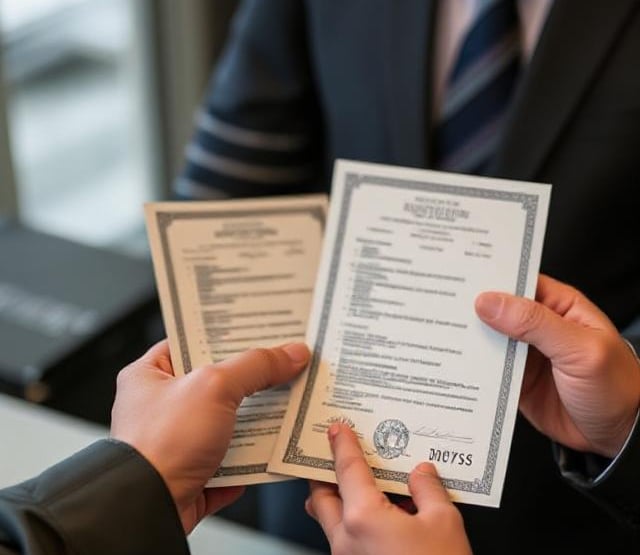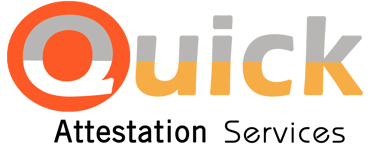MEA Attestation Fees Demystified: Save Time and Money on Document Legalization
7/26/20254 min read


Understanding MEA Attestation: What Is It and Why Is It Important?
MEA attestation, administered by the Ministry of External Affairs of India, is a crucial process in the sphere of document legalization. This procedure verifies the authenticity of various documents, such as educational certificates, marriage licenses, and commercial invoices. The primary purpose of MEA attestation is to ensure that these documents are recognized and accepted in foreign countries, thereby facilitating international dealings, employment opportunities, and immigration processes.
The importance of MEA attestation cannot be overstated. As globalization continues to expand, the need for validated documents has surged. Many countries require the attestation of documents to confirm their legitimacy before they are accepted for legal or administrative purposes. For instance, students pursuing higher education abroad must submit attested educational documents to universities. Similarly, individuals seeking employment in foreign nations might need attestation for their professional credentials. Notably, MEA attestation plays a significant role in immigration procedures, where the verification of personal documents is often a mandatory requirement.
Moreover, the MEA not only attests the documents but also serves as a bridge between Indian citizens and foreign authorities. This attestation process involves multiple steps, starting from the initial verification by the respective state government or other designated authorities, followed by the MEA’s final endorsement. This multi-tiered examination ensures comprehensive scrutiny, thereby enhancing the credibility of the documents involved.
With the increasing compliance demands from foreign governments, the role of MEA attestation becomes ever more pivotal. Failure to obtain proper attestation may lead to legal complications and the rejection of documents abroad. Thus, understanding the MEA attestation process is essential for anyone involved in international pursuits.
Breaking Down the Costs: MEA Attestation Fees Explained
The Ministry of External Affairs (MEA) attestation is a pivotal process for individuals seeking to use documents internationally. Understanding MEA attestation fees is crucial for effective budgeting and preparation. The costs can vary significantly based on several factors, including the type of document, the level of service urgency, and the method through which attestation is obtained.
Different types of documents incur varying fees. For instance, educational certificates often have distinct pricing compared to personal documents such as birth or marriage certificates. Typically, educational documents might fall into a higher fee bracket due to additional scrutiny and verification processes required by the authorities. Furthermore, services that document agents provide often have additional charges, which can add up if multiple documents require attestation.
The urgency of the attestation also plays a vital role in determining the overall fee. If an individual requires a fast-tracked service, it may involve higher costs. In contrast, opting for a regular service might be more economical, albeit with a longer processing timeframe. It is imperative for applicants to weigh their options carefully, evaluating whether the urgency justifies the additional expense.
To avoid unexpected costs, budgeting becomes essential. Applicants can start by researching standard fees associated with different documents and consulting with various agents or directly contacting the MEA for inquiries. Creating a checklist of documents and their corresponding fees will help maintain clarity throughout the process. Moreover, understanding the anticipated services required – whether it’s a direct MEA application or through an agent – can streamline expenses and ensure complete readiness for the process.
Strategies to Save on MEA Attestation Fees
When it comes to minimizing MEA attestation fees, several effective strategies can be employed that not only save money but also reduce time spent on the document legalization process. First and foremost, it is critical to leverage government resources. Different state governments may have specific guidelines or even provide assistance regarding the attestation process. By visiting official websites or utilizing local government agencies, individuals can access essential information on required documents, forms, and fee structures that can prevent unnecessary expenditures.
Another important step is understanding the necessity of each document's authentication level. Not all documents require the same level of attestation, and discerning which documents genuinely require legalization can help in avoiding unnecessary fees. For instance, while some documents like educational certificates may need full MEA attestation, others such as personal identification papers might only need a basic level of verification. Carefully evaluating which documents require full versus partial attestation ensures that resource allocation is focused on essential areas, thereby saving both time and money.
Choosing the right service provider is equally crucial. With numerous agencies offering MEA attestation services, individuals should thoroughly research their options. Look for service providers with a proven track record, transparent fee structures, and positive customer reviews. Some providers may offer packages that can be more economical, so comparing these offers can yield substantial savings. Proper document preparation plays a vital role in this process as well; ensuring that all documents are complete and in order can prevent added costs due to rejections or the necessity of resubmission.
In essence, by utilizing government resources, understanding attestation requirements, choosing the right service provider, and ensuring proper document preparation, individuals can effectively manage and reduce their MEA attestation fees while streamlining the entire process.
Step-by-Step Guide to the MEA Attestation Process
Navigating the Ministry of External Affairs (MEA) attestation process can seem daunting, but a structured approach simplifies the task significantly. The first step is to gather the necessary documents. Typically, the documents that require attestation include educational certificates, marriage certificates, and commercial documents, among others. Ensure that the originals and photocopies for each document are prepared, as this is crucial for verification purposes.
Next, individuals must submit these documents to a designated authority. Depending on the type of certificate, this could initially be your respective state government certificate verification or a relevant department. After state-level verification, you can approach the MEA for final attestation. It is advisable to check the specific requirements on the official MEA website or consult with an expert, as there may be additional documents required based on your individual circumstances.
Once the documents are submitted, you can expect a timeline for processing. Generally, the MEA attestation can take anywhere from 2 to 7 working days, depending on the workload and the type of documents. To stay updated and avoid unnecessary delays, utilize the tracking feature available on the MEA website. Here, you can enter the application reference number to check the status of your request.
While navigating through this process, be aware of common pitfalls. One frequent mistake is failing to check for accuracy in the documents submitted, as any discrepancies can lead to rejections and additional delays. Additionally, ensure that your application is completed in full and that all supporting documents are attached.
To simplify this process, consider utilizing online resources and services that specialize in document attestation. These services often provide valuable guidance and can help you complete the paperwork efficiently, allowing you to save time and reduce stress while ensuring proper compliance with MEA requirements.
Expert
Your trusted partner for document attestation services.
Contact NOw:
Support
+91 9210776391
© 2025. All rights reserved.
